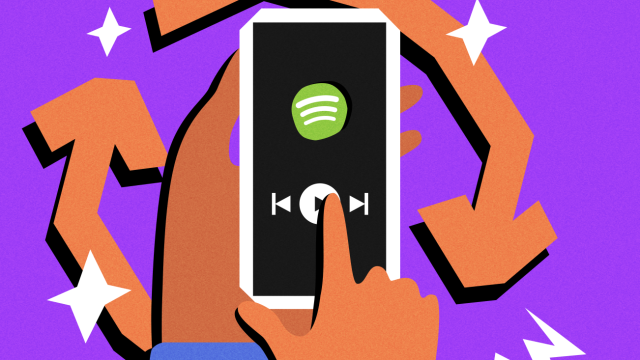This week, Spotify shared an update on its policies, aiming to “better support those most dependent on streaming revenues as part of their livelihood,” according to a company post. The updates address “artificial streaming,” the number of plays required to monetize tracks, and new minimums for the length of noise recordings.
First up, Spotify is cracking down on paid third-party streamers, something the company has previously cautioned artists to avoid: “Any service that claims to offer guaranteed placement on playlists on Spotify in exchange for money are in violation of our terms and conditions, and they shouldn’t be used.” Under the new policy, the company claims to have improved its methods in discovering artificial streaming technology, and “will start charging labels and distributors per track when flagrant artificial streaming is detected on their content.”
The company is also taking steps to make sure payment finds its way to artists—though there’s a catch: “Starting in early 2024, tracks must have reached at least 1,000 streams in the previous 12 months in order to generate recorded royalties.” This is to circumvent the loss of small payments that would otherwise get lost between bank fees and withdrawal minimums for labels and distributors—an amount Spotify says adds up to some $US40 million a year. Perhaps anticipating there might be some backlash with this change, the company clarified that “it’s more impactful for these tens of millions of dollars per year to increase payments to those most dependent on streaming revenue — rather than being spread out in tiny payments that typically don’t even reach an artist … 99.5% of all streams are of tracks that have at least 1,000 annual streams, and each of those tracks will earn more under this policy.”
Finally, the company is stipulating that “functional noise recordings”—which includes “white noise, nature sounds, machine noises, sound effects, non-spoken ASMR, and silence recordings”—must be at least two minutes long in order to quality for royalties. The example Spotify provides notes that, for instance, some users are “shortening whale sound tracks to 30 seconds and stacking them consecutively in a playlist without listeners noticing, so that they earn outsized payments.” Noise recordings will also have their revenue re-evaluated to be less than what music recordings are capable of generating.
Read the full update here.
